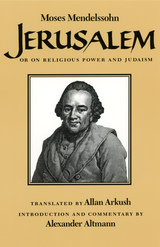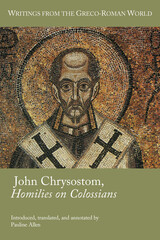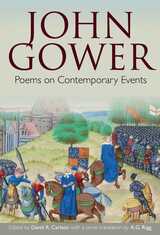7 start with J start with J


The first complete translation into a modern language of a major authority on the medieval Christian liturgy.
Honorius Augustodunensis’s Jewel of the Soul (the Gemma animae) gleams as one of the most attractive liturgical commentaries from the twelfth century. A lively and effective teacher, Honorius strives to unveil the meaning behind the sacred texts, objects, music, and ritual of the Roman Mass and Divine Office for young initiates. Building on the allegorical approach pioneered in the Carolingian era by Amalar of Metz, he shows readers how their souls are beautified by the liturgy as gold is by a jewel. His flowing and comprehensive commentary gained widespread influence in Western Christendom and was an important source for later liturgical treatises. For the modern scholar this work remains key to understanding the medieval allegorical approach to worship and provides valuable documentation about how these offices were celebrated in the twelfth century. These volumes offer the first complete translation into a modern language of this foundational Latin text on Christian liturgy.

The first complete translation into a modern language of a major authority on the medieval Christian liturgy.
Honorius Augustodunensis’s Jewel of the Soul (the Gemma animae) gleams as one of the most attractive liturgical commentaries from the twelfth century. A lively and effective teacher, Honorius strives to unveil the meaning behind the sacred texts, objects, music, and ritual of the Roman Mass and Divine Office for young initiates. Building on the allegorical approach pioneered in the Carolingian era by Amalar of Metz, he shows readers how their souls are beautified by the liturgy as gold is by a jewel. His flowing and comprehensive commentary gained widespread influence in Western Christendom and was an important source for later liturgical treatises. For the modern scholar this work remains key to understanding the medieval allegorical approach to worship and provides valuable documentation about how these offices were celebrated in the twelfth century. These volumes offer the first complete translation into a modern language of this foundational Latin text on Christian liturgy.


A rare example of musical scholarship from the Tudor period, in translation and fully annotated
John Dygon was the prior of St. Augustine’s monastery in Canterbury when Henry VIII boldly dissolved the English Catholic Church during the 1530s and reorganized it under royal control. Only a single copy of Dygon’s manuscript on music theory has survived, held by Trinity College, Cambridge. This volume will be the first publication of these two treatises, providing both a scholarly transcription and English translation.
Dygon’s treatise provides a rare and important example of musical scholarship from the early Tudor period, demonstrating the status of music education at the time, the affiliations of English scholarship with music study in Europe, and the music that was actually performed in England. The treatises address questions of musical notation, especially regarding rhythmic proportions, as well as practical issues about performance. Theodor Dumitrescu’s introduction situates Dygon’s treatises within the larger history of European music, paying close attention to its borrowings from and adaptations of prior treatises.


"He was a man of fair learning, and more than average accomplishment; not at all intolerant of opinions at issue with his own; in religion a Dissenter of the class still prevalent in New England: in his tastes scholarly and refined, not ill read in general literature, prone to social enjoyments, a reasonably good critic of what he saw, altogether an excellent example of the class of men out of whom the fathers and founders of that great republic sprang..."
-Charles Dickens, in summing up the character of Samuel Curwen
This unabridged two-volume edition of Samuel Curwen's journal supersedes the only version previously available to historians: a fragmentary and inaccurate mid-nineteenth-century work published by George Atkinson Ward, which nevertheless was celebrated by Charles Dickens.
Andrew Oliver, combining painstaking documentation with an abundance of illustrations, provides a colorful, complete work which ranks as a valuable source of English social history from 1775 to 1784. It was during these years that Curwen, a Salem merchant, after fleeing from the harassment incurred by his loyalist activities, migrated to England and kept this journal. A man small in size, physically timid, mentally brave, and remarkably injudicious, Curwen felt that he was "unhappily though unjustly ranked" as a tory. Thus his observations and thoughts are useful in understanding the attitudes and experiences of the loyalist exiles.
Set primarily in England and sparked throughout with engaging reports on personalities, places, and even the weather, the journal traces Curwen's nine years of exile. It also briefly details his departure from Salem, his short and alarming sojourn in Philadelphia where he found the political climate no less unfavorable, and his subsequent sea voyage to England.
The Journal of Samuel Curwen, Loyalist is the first in a series of Loyalist Papers, a long-term program to be undertaken independently by a number of publishers in Britain, Canada, and the United States. The program will locate, gather, and make available documents that place in perspective those Americans who, at the time of the Revolution, remained loyal to the Crown.
READERS
Browse our collection.
PUBLISHERS
See BiblioVault's publisher services.
STUDENT SERVICES
Files for college accessibility offices.
UChicago Accessibility Resources
home | accessibility | search | about | contact us
BiblioVault ® 2001 - 2024
The University of Chicago Press









